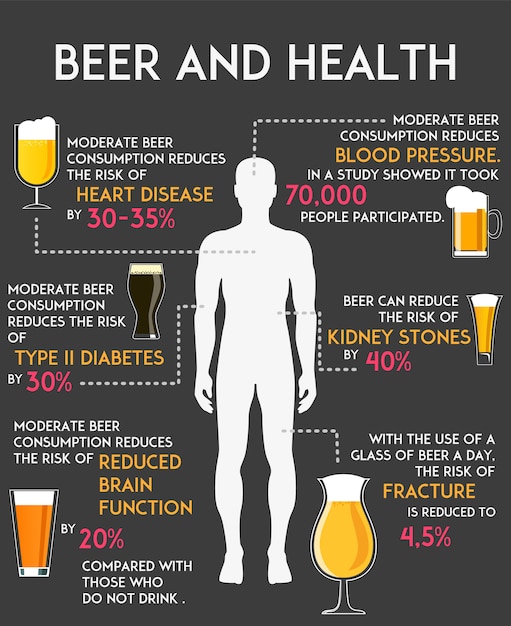Alcohol consumption is often viewed through a prism of societal concern, highlighting its potential for addiction and detrimental health effects. However, a more nuanced understanding reveals that moderate alcohol consumption can confer certain benefits. The objective of this article is to elucidate the positive effects of alcohol consumption, particularly aimed at a younger demographic curious about the responsible enjoyment of alcoholic beverages.
The discourse surrounding alcohol is rife with dichotomies; thus, it is imperative to differentiate between responsible and excessive consumption. This article will explore the health benefits, social advantages, and cognitive enhancements associated with moderate drinking.
To set the stage, we must first examine the definition of moderate alcohol consumption. The Dietary Guidelines for Americans define moderate drinking as up to one drink per day for women and up to two drinks per day for men. This allows a framework for the subsequent discussions on the positive implications of alcohol in various facets of life.
Enhancing Cardiovascular Health
One of the most compelling arguments for moderate alcohol consumption lies in its potential cardiovascular benefits. Studies have indicated that alcohol may enhance heart health when consumed in moderation. Specifically, moderate alcohol intake has been associated with elevated levels of high-density lipoprotein (HDL), commonly referred to as ‘good cholesterol.’ HDL helps remove low-density lipoprotein (LDL), or ‘bad cholesterol,’ from the bloodstream, thereby reducing the risk of atherosclerosis and cardiovascular disease.
Moreover, red wine has garnered particular attention due to its high concentration of antioxidants, such as resveratrol. These compounds have been shown to prevent oxidative stress and inflammation, two critical factors in the development of heart disease. A plethora of studies suggest that the consumption of red wine in moderation may correlate with a lower incidence of coronary artery disease, making it an appealing choice for health-conscious individuals.
It is essential to acknowledge that while these benefits exist, they are most pronounced among those who consume alcohol sparingly. Excessive drinking can counteract these advantages, emphasizing the importance of moderation.
The Social Catalyst: Building Connections
Alcohol has long been a social lubricant, facilitating interactions and fostering connections among individuals. For younger audiences, this aspect cannot be overstated; alcohol often plays a pivotal role in social gatherings, celebrations, and communal experiences. The act of sharing a drink can break down barriers and engender camaraderie, promoting networking and building friendships.
In a study conducted by social psychologists, it was revealed that individuals who consumed alcohol in social contexts were more likely to perceive others as approachable and friendly. This perception can enhance social dynamics and contribute to a sense of belonging, particularly important for younger generations seeking to establish their identities in an increasingly diverse world.
Furthermore, the cultural significance of toasting and sharing drinks in various traditions serves to solidify interpersonal bonds. Whether it is a casual get-together or a formal event, the ritualistic aspect of drinking together can elevate the experience and foster unity among participants, creating lasting memories.
Cognitive Engagement and Stress Relief
Recent discussions in health psychology have opened new avenues of understanding regarding the cognitive effects of alcohol. Under controlled conditions, moderate consumption has been associated with enhanced creativity and cognitive flexibility. Alcohol’s disinhibitory effects can promote free-thinking and fluidity in idea generation, making it a potentially valuable tool for those in creative fields or academic pursuits.
Moreover, the psychological relaxation that comes with moderate drinking can serve as a potent stress reliever. In today’s fast-paced world, many young people are burdened by academic pressures, career anxieties, and social expectations. A moderate drink can provide a brief respite, facilitating relaxation and helping individuals unwind after a stressful day.
However, it is crucial to emphasize that this does not imply that alcohol should be the primary means of managing stress. It is essential to explore various coping mechanisms and prioritize mental health through holistic practices such as mindfulness, exercise, and social support systems.
Potential Cognitive Risks vs. Benefits
While the benefits of moderate alcohol consumption are evident, it remains essential to recognize the potential cognitive risks associated with excessive drinking. Research has indicated that chronic heavy drinking can lead to cognitive decline, memory impairment, and emotional instability. Consequently, it is paramount for individuals to engage in informed decision-making regarding their alcohol consumption habits.
Inspiring Responsible Consumption
Putting the positive effects of alcohol into perspective necessitates a discussion about responsibility and education. Young adults are navigating a complex landscape that includes peer pressure and misinformation. To fully appreciate the benefits of alcohol, it is essential for individuals to educate themselves on what constitutes moderation, understand personal tolerance levels, and make informed choices that prioritize their health and well-being.
Engaging with reliable resources and seeking guidance from health professionals can empower young individuals to make decisions that align with a responsible lifestyle. Furthermore, fostering an environment of open dialogue about alcohol can encourage younger generations to view drinking as an aspect of social culture rather than an obligation or rite of passage.
Conclusion: A Balanced Perspective
In conclusion, while it is crucial to acknowledge the potential dangers associated with alcohol consumption, a balanced perspective reveals that moderate drinking can yield various benefits, particularly in cardiovascular health, social bonding, and cognitive engagement. Young adults, who are at a formative stage in their lives, stand to gain from understanding these facets of alcohol consumption.
Ultimately, the key lies in moderation and education. By cultivating a culture of responsible drinking, individuals can enjoy the social and health benefits that moderate alcohol consumption has to offer while minimizing the risks associated with excess.
